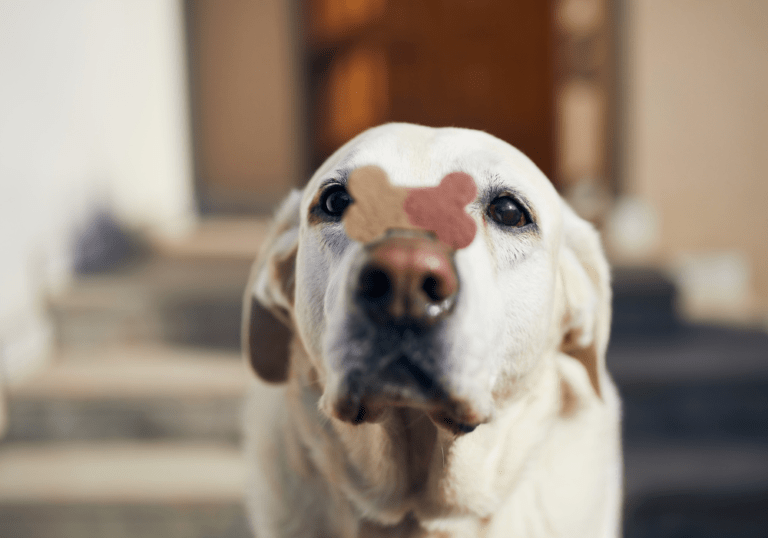How Many Treats Can Your Dog Really Have?

As a devoted dog owner, understanding the balance between rewarding your pet and maintaining their health can be challenging. A common guideline suggested by veterinarians, including our experts at Willow Glen Pet Hospital, is that treats should not constitute more than 10 percent of your dog’s diet. But what does this 10-percent rule really mean in practical terms?
It’s All About Calories
The key to managing your dog’s treat intake effectively lies in understanding their caloric needs. Unlike the standard 2,000 daily calorie intake recommended for humans, dogs have varying caloric requirements based on their size, age, and activity level. This variability means that pet owners must calculate their dog’s specific caloric needs to determine what 10 percent would be for treats.
For instance, if the dog food package indicates 364 kcal/cup, it means 364 calories per cup. Knowing this, you can calculate how much your dog consumes daily and what 10 percent of that intake would be in terms of treats.
Counting Calories in Dogs
Let’s break it down with an example: if a senior German Shepherd consumes 1,456 calories a day from their dog food, 10 percent equals approximately 145.6 calories. This figure represents the total caloric amount available for treats. However, if you’re giving your dog high-calorie treats, you’ll need to adjust their main meals accordingly to avoid overfeeding. It’s crucial to ensure that reducing kibble to accommodate treat calories does not deprive your dog of necessary nutrients. Always consider the nutritional content of both treats and main meals.
Choosing Healthy Treats
When selecting treats, consider their caloric density. For example, a single cubic inch of cheddar cheese contains about 69 calories, which might be suitable for a larger dog but excessive for smaller breeds. Instead, low-calorie alternatives like cucumbers or carrots can be healthier choices that prevent weight gain.
Fighting Dog Obesity
Awareness of the caloric content in treats is essential in preventing obesity, which can lead to serious health issues such as joint disease, diabetes, and pancreatitis. Simple adjustments and an understanding of caloric impact can greatly enhance your pet’s health.
For instance, a small cube of cheese can significantly exceed the 10-percent caloric intake for a small dog, analogous to a human eating a much larger and calorie-dense meal than necessary.
Consult Our Doctors at Willow Glen Pet Hospital
Proper diet management and treat allocation are vital for maintaining your dog’s health. If your dog is already facing issues with overweight or you’re unsure about the best treat options, consult our doctors at Willow Glen Pet Hospital for tailored advice that suits your pet’s specific needs.
Need More Help?
If you have any questions or need further assistance with your dog’s diet and health, call us at Willow Glen Pet Hospital, (669) 342-7472, located at 1033 Willow Street, San Jose, CA, 95125, US. Our hours are Monday – Saturday from 8:00 am – 6:00 pm. Dr. Gillon or Dr. Shani will be pleased to assist you with expert advice and care. Visit us online or call to schedule a consultation and help your furry friend lead a happy, healthy life!
